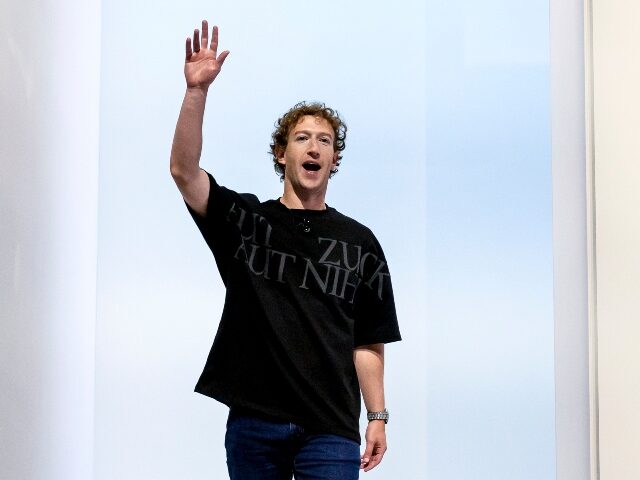A coalition of more than 70 “fact checking” organizations have penned an open letter to Mark Zuckerberg, expressing their outrage over Meta’s decision to move away from biased left-wing “fact check” organizations and toward crowdsourced moderation on its platforms in the United States.
Business Insider reports that the International Fact-Checking Network (IFCN) has rallied support from 71 organizations worldwide to pressure Meta to walk back recent plans to end it’s fact-checking service. The IFCN, part of the nonprofit media organization Poynter Institute, published an open letter addressed to Meta CEO Mark Zuckerberg on Thursday, emphasizing what they claim is the importance of biased left-wing fact checking in maintaining shared realities and evidence-based discussions.
The organizations claim that “Fact-checking is essential to maintaining shared realities and evidence-based discussion, both in the United States and globally.” They even believe that “If Meta decides to stop the program worldwide, it is almost certain to result in real-world harm in many places.”
Meta’s unexpected announcement on Tuesday revealed plans to replace third-party fact-checkers with crowdsourced moderation on Facebook, Instagram, and Threads in the U.S. The IFCN argues that this move is “a step backward for those who want to see an internet that prioritizes accurate and trustworthy information.” The decision could also have severe financial implications for the fact-checking organizations that rely on Meta for revenue — many of which will be left in financial crisis now if Meta stops bankrolling their leftist censorship operations.
Breitbart News reported on Zuckerberg’s announcement, writing:
Meta, the parent company of Facebook, Instagram, and Threads, is undergoing a major overhaul of its content moderation practices. CEO Mark Zuckerberg announced on Tuesday that the company will end its fact-checking program, plagued by severe leftist bias, and replace it with a community-driven system similar to X’s Community Notes. The changes come as a response to what Zuckerberg perceives as a “cultural tipping point” towards prioritizing speech, influenced by the recent elections.
In his video, Zuckerberg states: “We’re going to get back to our roots and focus on reducing mistakes, simplifying our policies and restoring free expression on our platforms. More specifically, here’s what we’re going to do. First, we’re going to get rid of fact checkers and replace them with community notes similar to X, starting in the U.S.”
In a press release, Joel Kaplan, Meta’s Chief Global Affairs Officer, stated, “Meta’s platforms are built to be places where people can express themselves freely. That can be messy. On platforms where billions of people can have a voice, all the good, bad and ugly is on display. But that’s free expression.”
Kaplan highlighted Zuckerberg’s 2019 speech at Georgetown University, where he argued that free expression has been the driving force behind progress in American society and around the world. “Some people believe giving more people a voice is driving division rather than bringing us together. More people across the spectrum believe that achieving the political outcomes they think matter is more important than every person having a voice. I think that’s dangerous,” Zuckerberg said at the time.
Kaplan acknowledged that Meta had developed complex systems to manage content in recent years, partly in response to societal and political pressure. However, he admitted that this approach had gone too far. “As well-intentioned as many of these efforts have been, they have expanded over time to the point where we are making too many mistakes, frustrating our users and too often getting in the way of the free expression we set out to enable. Too much harmless content gets censored, too many people find themselves wrongly locked up in ‘Facebook jail,’ and we are often too slow to respond when they do,” he said.
As an alternative, the IFCN proposed a “new model” for collaboration, suggesting that community notes could be used in conjunction with professional fact-checkers. The organization emphasized the importance of this approach, stating, “The need for this is great: If people believe social media platforms are full of scams and hoaxes, they won’t want to spend time there or do business on them.”
Read more at Business Insider here.
Lucas Nolan is a reporter for Breitbart News covering issues of free speech and online censorship.

COMMENTS
Please let us know if you're having issues with commenting.